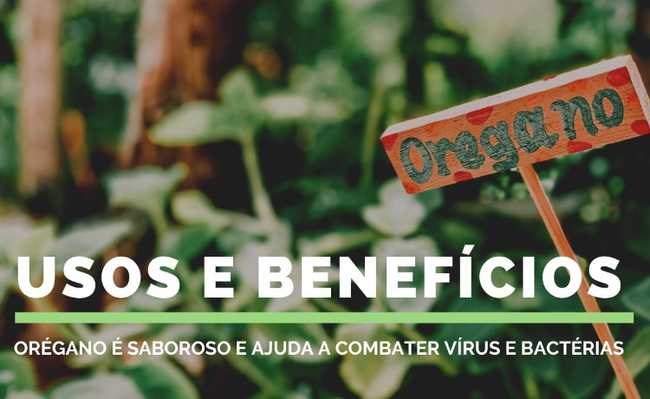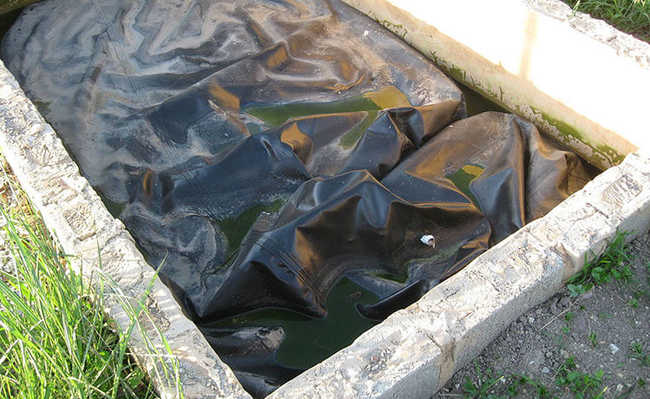Oregano: benefits and what it is for
Oregano has antioxidants and helps fight viruses and bacteria, among other benefits

Oregano is a spice present in many kitchens around the world. It can be found fresh, dried or in essential oil form and provides significant health benefits. Although normally used in small amounts, oregano contains some important nutrients. According to one study, just a teaspoon of dried oregano can supply about 8% of the daily vitamin K requirement. From helping to fight bacteria to reducing inflammation, other studies have looked at a range of potential benefits of oregano. Check out:
1. Rich in Antioxidants
Oregano is rich in antioxidants, compounds that help fight damage caused by harmful free radicals in the body. The accumulation of free radicals has been associated with chronic diseases such as cancer and heart disease (see studies about it here: 1, 2).
Several test tube studies have found oregano and oregano oil to be rich in antioxidants (see studies on 3, 4). Oregano essential oil is especially rich in carvacrol and thymol, two antioxidants that can help prevent cell damage caused by free radicals (see study on this: 5).
In combination with other antioxidant-rich foods such as fruits and vegetables, oregano can provide a healthy dose of antioxidants that can help improve health.
- Oregano essential oil: applications and benefits
2. Can help fight bacteria
Oregano contains certain compounds that have potent antibacterial properties.
A test tube study showed that the essential oil of oregano helped to block the growth of Escherichia coli and Pseudomonas aeruginosa, two strains of bacteria that can cause infection.
Another test tube study found that oregano fights 23 species of bacteria.
Furthermore, a test tube study that compared the antimicrobial activity of essential oils of oregano, sage and thyme concluded that the essential oil of oregano was one of the most effective against bacteria, after thyme.
- Salvia: what is it for, types and benefits
3. It can help fight cancer
As you already know, oregano is rich in antioxidants. These compounds can not only neutralize free radical damage, but can also help prevent cancer (see study about it here: 6).
Some test tube studies have shown that oregano and its components can help kill cancer cells.
A test-tube study treated human colon cancer cells with oregano extract and found that it stopped the growth of cancer cells and helped to kill them.
Another test-tube study showed that carvacrol, one of the components of oregano, also helped to suppress the growth and spread of colon cancer cells.
However, these studies used large amounts of oregano and its compounds. Human studies using normal intakes are needed to determine its effects.
4. It can help reduce viral infection

Edited image Tina Xinia on Unsplash
In addition to fighting bacteria, some test-tube studies have found that oregano and its components also protect against some viruses.
In particular, carvacrol and thymol are two compounds in oregano that have been associated with antiviral properties. In a test-tube study, carvacrol inactivated norovirus, a viral infection that causes diarrhea, nausea and stomach pain, within an hour of treatment.
Another test-tube study found that thymol and carvacrol inactivated 90% of the herpes simplex virus in just one hour. While these results are promising, further research into how oregano might affect viral infections in humans is needed.
5. It can decrease inflammation
Inflammation is a normal immune response that occurs as a result of illness or injury. It is believed, however, that chronic inflammation contributes to the development of diseases such as heart disease, diabetes and autoimmune diseases (see study about it here: 7).
Oregano is rich in antioxidants, which can help neutralize free radicals and reduce inflammation (see study about it here).
It also contains compounds such as carvacrol that have been shown to have anti-inflammatory properties. In an animal study, carvacrol reduced swelling in rat paws by up to 57%.
Another animal study showed that a mixture of thyme and oregano essential oils reduced the number of inflammatory markers in mice with colitis or an inflamed colon.
Keep in mind that these studies looked at the effects of oregano and its components in highly concentrated amounts. More analysis is needed to determine how a normal dose could affect inflammation in humans.
6. Easy to add to diet
While you can think of oregano as a unique filling for pizzas and other pastas, it's versatile and can be used in many ways.
Try mixing whole oregano leaves into other vegetables for a nutrient-packed salad or sprinkling the leaves into sauces, soups or stews.
You can also use it to make fresh pesto or salad dressing, season protein dishes or homemade sauces.
7. Fights dengue mosquito larvae
A survey by the Pontifical Catholic University (PUC) of Minas Gerais and the Ezequiel Dias Foundation (Funed) attested to the efficiency of using oregano and clove oils to kill mosquito larvae Aedes aegypti. In contact with the breeding site, the oils kill the larvae within 24 hours.










